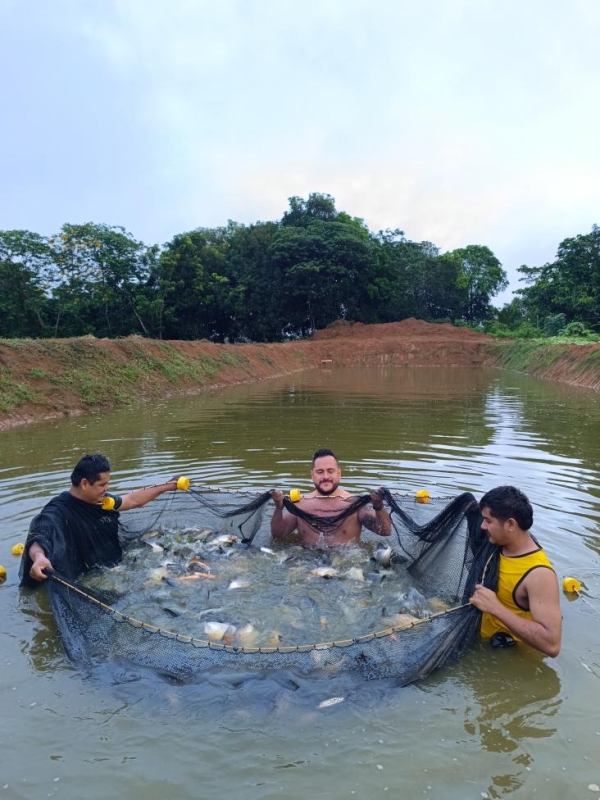- Ex-AL MP BM Mozammel Haque arrested in Dhaka |
- Prof Yunus expresses solidarity with Shahidul Alam and Gaza |
- Tk 38-cr Rangpur women’s sports complex now grazing ground! |
- 70 Dead in Gaza as Trump Urges Israel to Halt Strikes |
- A welcome rare momentum to reach a permanent ceasefire in Gaza |
Solar Fish Farms Boost Amazon Indigenous Food Security

The first harvest of Amazonian fish from one of the ponds contributing to the food security of indigenous families, using solar energy. The initiative is expected to be replicated in a second phase, reaching more indigenous communities in two provinces of the Peruvian Amazon.
“Our organization is showing that it is possible to move toward an energy transition and not depend on oil,” said Elaina Shajian, president of the Regional Coordinator of Indigenous Peoples of San Lorenzo (Corpi-SL) in the Peruvian Amazon.
The effects of climate change and extractive industries are harming the well-being of indigenous communities in the area. Finding food is a challenge—fish, a staple of their diet, is increasingly scarce and expensive. It is harder to catch in rivers, and its market price is often unaffordable, sometimes exceeding US$12 per kilogram, explained the Corpi-SL president.
The impact on children’s health is direct. Official figures show that in 2024, anemia among children aged six to 35 months in rural areas, such as the two provinces mentioned, reached around 52%, exceeding the national average of 43%.
Beyond improving nutrition through community-led decisions, the fish farming initiative is proof that alternative energy sources beyond fossil fuels—which damage the environment and harm human health—can be successfully used.
“Corpi-SL encompasses 579 communities that can now see energy transition is possible. It’s not just talk—they can see real solutions to ensure our food security today and in the future, without depending on oil,” emphasized Shajian.
At the Yachaykuna farm (“school of knowledge” in Kichwa), a 51-hectare property near San Lorenzo, two fish farming ponds operate entirely with solar energy. The initiative is supported by the Citizens’ Movement Against Climate Change (Mocicc), a Peruvian civil society platform promoting responses to the climate crisis and sustainable community development.
With the installation of solar panels, the farm now raises thousands of paco and gamitana fish, providing both food and income for the community. Plans are underway to expand to a fingerling breeding center and train other indigenous groups to replicate the project.
The initiative addresses food insecurity caused by oil spills in the Norperuano pipeline, which has contaminated rivers for decades. Poverty rates in the two provinces where Corpi-SL operates reach 52% and 56%, far above the national average.
Mocicc leaders say the project is part of a “fair and popular energy transition” that moves away from fossil fuels while meeting community needs. They criticize government policies that continue to expand extractive industries instead of supporting local, sustainable solutions like this one.

